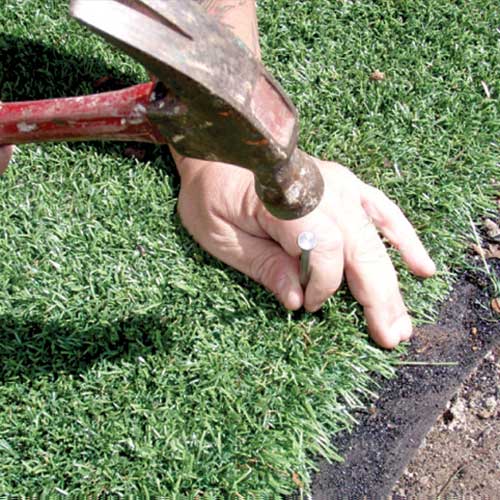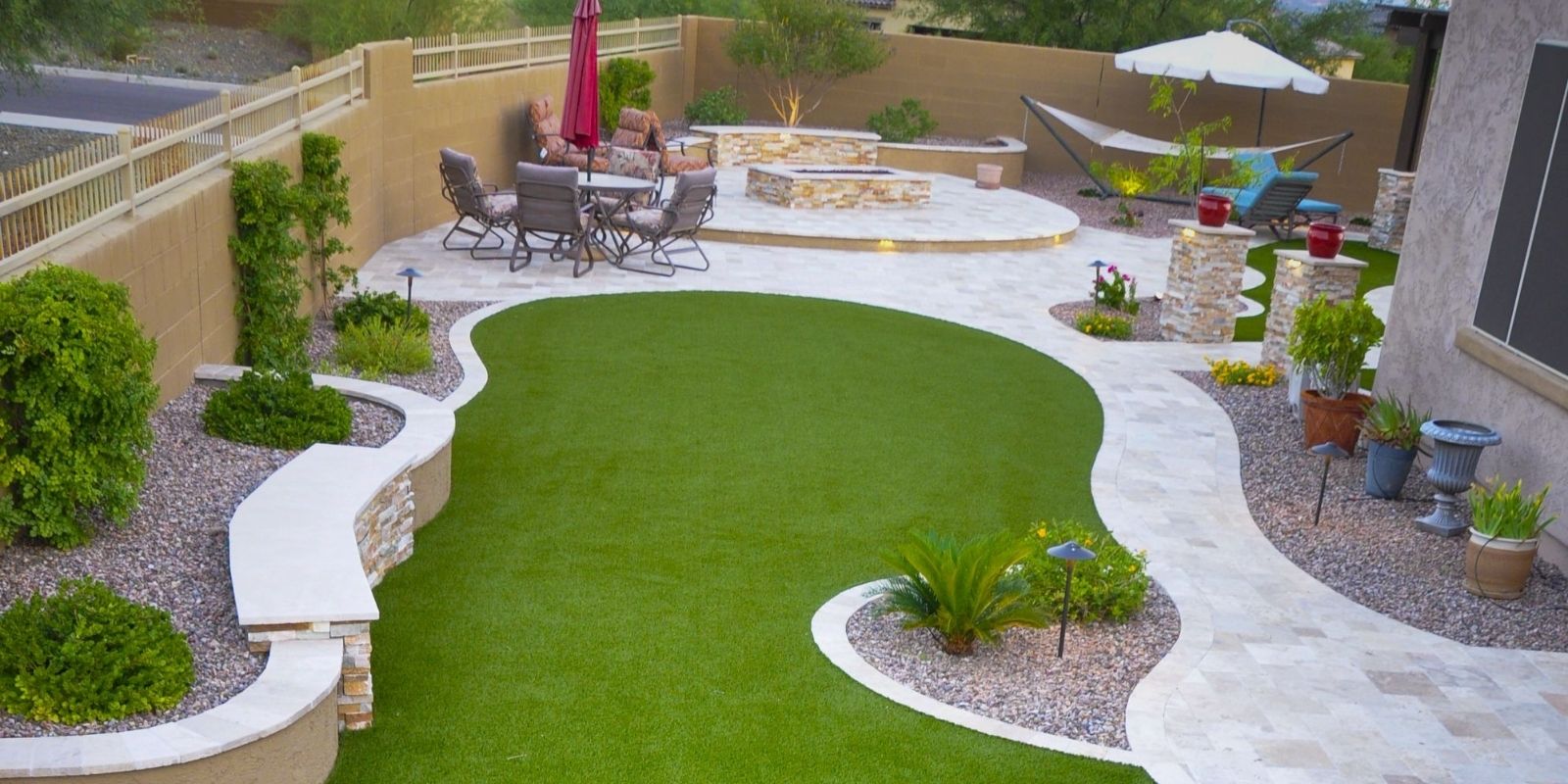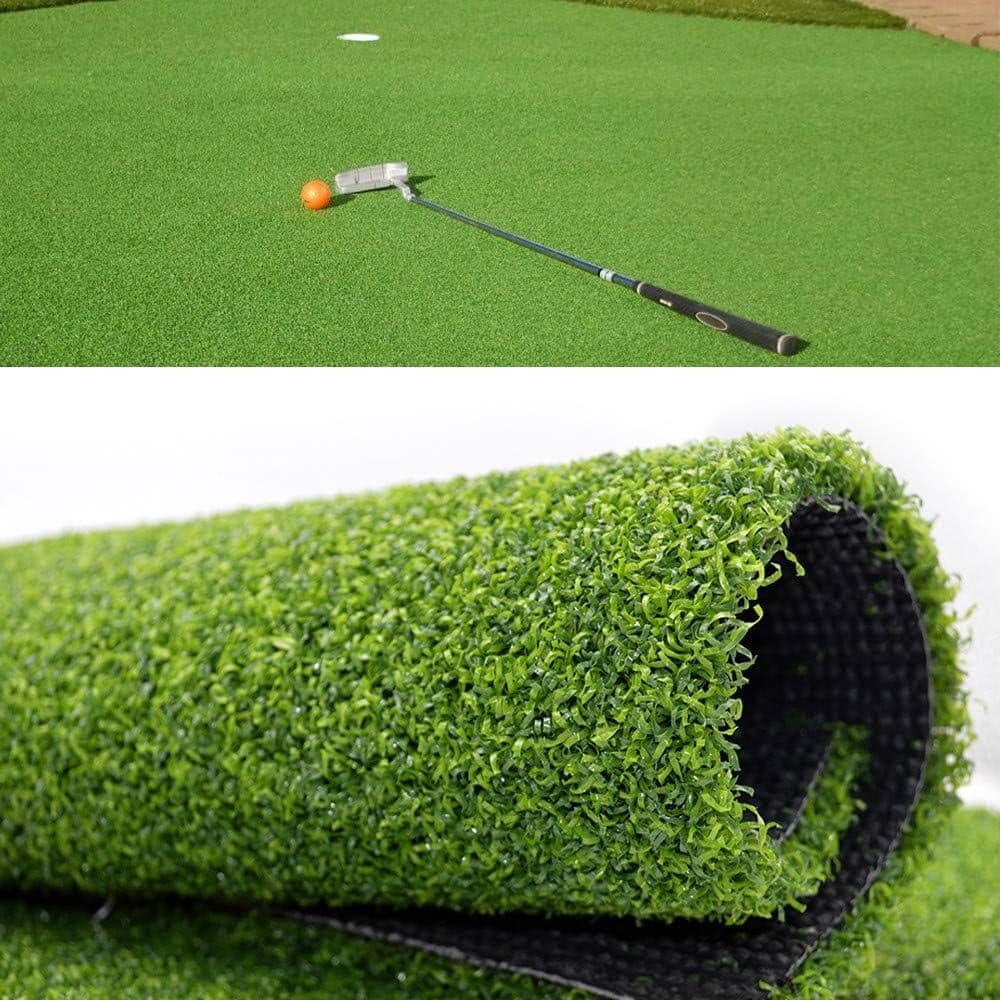Top Arizona Turf Providers Ensuring a Realistic Lawn Option
Top Arizona Turf Providers Ensuring a Realistic Lawn Option
Blog Article
Explore the Environmental Perks of Opting for Synthetic Grass Solutions
The fostering of fabricated lawn services provides an engaging possibility to attend to pressing environmental challenges. By dramatically reducing water use and decreasing the application of dangerous chemicals, these choices not just promote sustainable landscape design however additionally shield local ecological communities.
Water Conservation Benefits
One of one of the most significant advantages of synthetic grass is its ability to save water. Standard yard lawns require substantial irrigation, especially in locations prone to dry spell or water constraints. In comparison, synthetic grass does not need watering, considerably lowering the general need for water sources. This feature is particularly useful in arid regions where water scarcity is a pushing issue.
By removing the demand for routine watering, synthetic grass contributes to lasting landscape practices and helps alleviate the environmental influence of excessive water intake. The conservation of water extends to the decrease of runoff, which can lead to dirt disintegration and waterway contamination.
Additionally, the installment of synthetic grass enables property owners and districts to assign water resources extra efficiently, concentrating on crucial uses such as alcohol consumption water and agriculture. The shift in the direction of fabricated grass not just promotes responsible water usage however additionally lines up with wider ecological objectives targeted at preserving natural deposits.
As areas significantly prioritize sustainability, the water conservation benefits of fabricated turf offer an engaging instance for its fostering in industrial and property landscape design jobs.
Reduced Chemical Use
The change to synthetic grass considerably reduces the dependence on chemical treatments typically used in all-natural grass maintenance. Traditional lawn management commonly entails the application of chemicals, herbicides, and fertilizers to advertise development and control insects. These chemicals can posture dangers to human health and wellness, neighborhood wildlife, and the environment, contributing to dirt and water contamination.
In comparison, artificial lawn gets rid of the requirement for these damaging substances. By lessening the release of artificial compounds right into the community, fabricated grass promotes much healthier soil and water systems.
In addition, the absence of chemical drainage connected with synthetic grass installations aids safeguard regional waterways from contamination, supporting aquatic life and keeping biodiversity. Phoenix turf companies. As areas increasingly focus on lasting practices, choosing for synthetic turf provides a sensible service that lines up with ecological conservation objectives. Via this change, building owners can appreciate lavish green spaces without jeopardizing ecological health and wellness, leading the way for a more sustainable future
Reduced Carbon Impact

Additionally, the installment of synthetic grass can lead to substantial water preservation. All-natural grass require significant quantities of water for irrigation, which not only includes in the carbon footprint related to water removal and treatment however additionally pressures local water resources. On the other hand, synthetic grass requires marginal upkeep, calling for no watering, therefore significantly minimizing water usage and its linked energy costs.
Furthermore, the longevity of synthetic grass adds to its decreased carbon effect. With a see this site lifespan of approximately 15 years or even more, the need for regular substitutes is diminished, leading to less waste and reduced power consumption in production and dealing with standard yard alternatives. Overall, synthetic grass provides a sustainable choice for eco mindful landscaping.
Habitat Preservation
Habitat preservation is an important consideration in the argument over landscaping selections, especially when contrasting synthetic grass to all-natural yard. All-natural lawn lawns often call for substantial maintenance, including using plant foods, herbicides, and pesticides, which can negatively impact regional communities. These chemicals can leach right into the soil and waterways, hurting indigenous plants and fauna and interrupting local habitats.
Man-made grass gets rid of the requirement for harmful chemicals, therefore safeguarding close-by wild animals and keeping the honesty of bordering communities. The installment of YOURURL.com artificial turf can lead to the conversion of previous yard locations right into even more biodiverse landscapes, such as pollinator yards or native plant locations, which can sustain regional wildlife.
Eventually, the transition to synthetic grass not only saves water and decreases maintenance efforts yet additionally cultivates a much more unified connection between human activities and the native environment, advertising environment preservation at the same time.
Long-Term Sustainability
Long-term sustainability is a vital element in assessing the advantages of synthetic grass over standard grass lawns. Among one of the most considerable benefits of artificial lawn is its toughness; it can last up to 15-20 years with minimal upkeep, whereas natural grass requires frequent reseeding and replacement. This long life minimizes the demand for consistent sources, such as water, fertilizers, and chemicals, which are necessary for preserving a healthy grass yard.
Furthermore, man-made turf adds to a reduction in carbon exhausts associated with grass care equipment. Traditional grass typically require gas-powered lawn mowers, trimmers, and blowers, all of which add to air contamination. Phoenix turf companies. In contrast, synthetic grass gets rid of the demand for such devices, advertising a cleaner environment
Additionally, the production of synthetic grass progressively makes use of recycled products, improving its sustainability account. As makers take on green methods, the ecological impact of synthetic lawn remains to decrease.

Conclusion
The fostering of fabricated grass solutions offers substantial ecological advantages, consisting of considerable water conservation, minimized reliance on damaging chemicals, and a lower carbon impact. Fabricated grass aids in protecting all-natural habitats by decreasing land disruption and promoting long-lasting sustainability through the use of sturdy materials. Jointly, these elements highlight the possibility of synthetic grass to add positively to environmental wellness and offer a feasible alternative to standard landscaping techniques in a significantly resource-conscious globe.
In contrast, fabricated turf does not need watering, significantly decreasing the general demand for water sources. By minimizing the release of synthetic compounds into the ecosystem, synthetic grass advertises much healthier dirt and water systems.
In addition, the setup of man-made lawn can result in significant water preservation. In contrast, synthetic turf requires minimal upkeep, calling for no watering, thus dramatically lowering water usage and its connected power prices.

Report this page